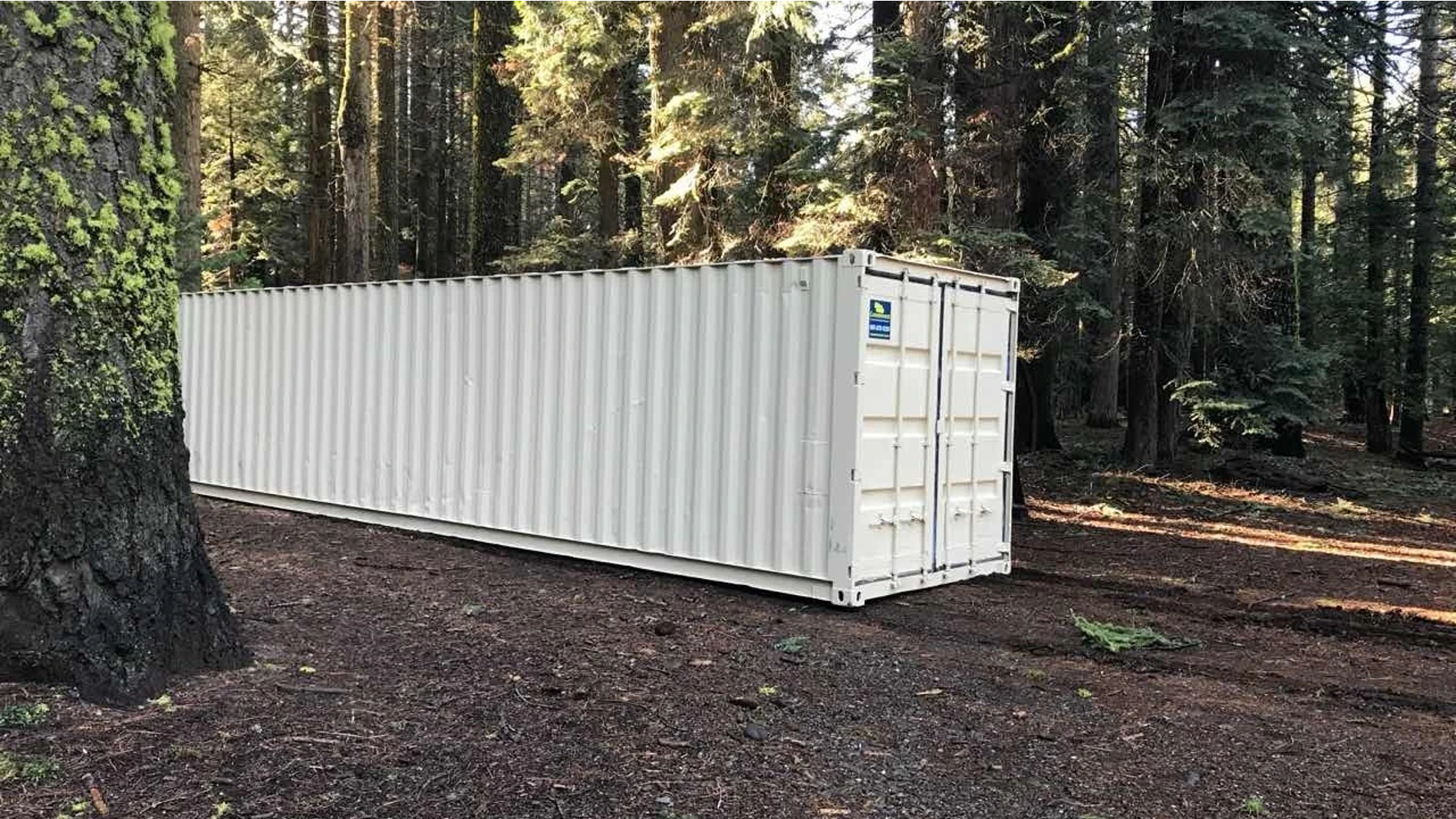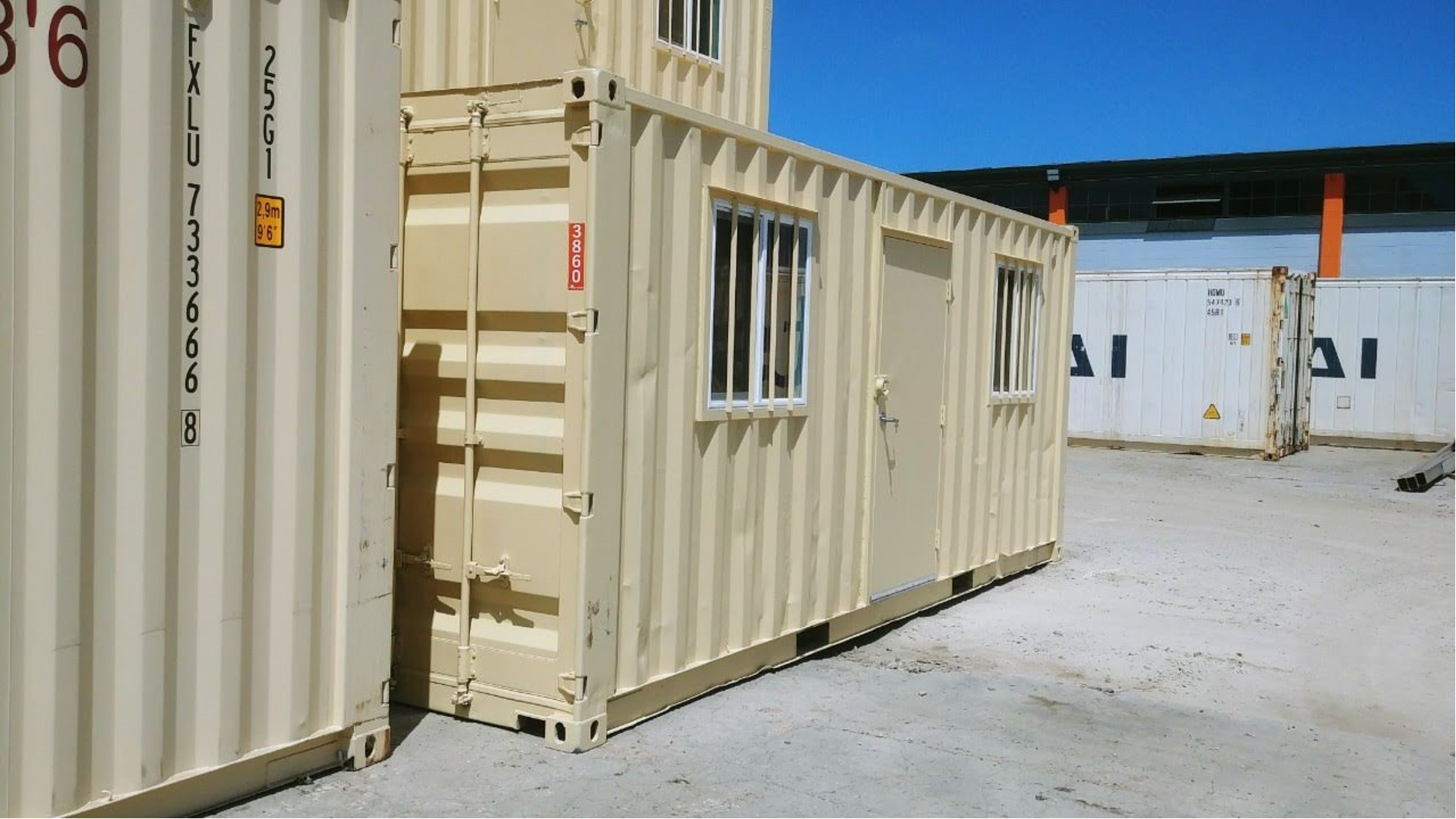Massachusetts Shipping Container Zoning Laws, Permits & Building Code Requirements
Get a quoteMassachusetts Shipping Container Zoning Law, Permit & Building Code Guide
Key Takeaways
- Massachusetts allows shipping container homes, but local zoning laws and building codes must be followed.
- Securing a building permit is essential and requires understanding your local municipal regulations.
- Climate and environmental standards in Massachusetts influence shipping container home design and placement.
- Proper documentation and planning can expedite permit approval and reduce costs.
- Conexwest is your go-to shipping container provider with a vast inventory and excellent customer support.
Shipping Container Zoning Laws, Permits, & Building Code Requirements In Massachusetts
Zoning Laws
- Permissible Uses: Shipping containers can be used for various purposes, including storage, commercial use, or as residential structures. However, each municipality in Massachusetts has its zoning regulations that dictate where and how containers can be used.
- Zoning Classification: Properties are classified into residential, commercial, and industrial zones. Containers may be allowed in some zones but prohibited in others.
- Setback Requirements: Most municipalities require containers to be set back a certain distance from property lines and other structures. This distance can vary but usually ranges from 5 to 50 feet.
- Height Restrictions: Local ordinances often impose height limits on structures, including shipping containers. These limits can vary depending on the zone.
Permits
- Building Permits: A building permit is required for any shipping container that will be used as a permanent structure or modified for habitation.
- Temporary Use Permits: For short-term projects or storage needs, temporary use permits may be sufficient. These permits usually have time limits attached.
- Site Plan Review: Some municipalities require a site plan review to evaluate the impact of the container on the surrounding area, including traffic flow and visual aesthetics.
Building Code Requirements
- Structural Integrity: Containers used for habitation must comply with the Massachusetts State Building Code regarding structural safety and integrity.
- Safety Standards: Compliance with health and safety standards is mandatory for any modifications made to the container, including plumbing and electrical systems.
- Environmental Considerations: Massachusetts has stringent environmental regulations that may affect the design and placement of shipping containers, especially in terms of energy efficiency and land use.
Examples from Various Municipalities in Massachusetts
- Boston:
- Zoning: In Boston, shipping containers are generally considered accessory structures and may require a special permit if they exceed size limits or are used for non-permitted activities.
- Building Codes: Containers converted into living spaces must adhere to strict building codes regarding insulation and egress requirements.
- Cambridge:
- Zoning Laws: Cambridge has specific regulations regarding shipping containers in commercial zones but may restrict their use in residential areas.
- Permits: A site plan review is mandatory for all shipping container installations for compliance with zoning regulations.
- Worcester:
- Use Regulations: Worcester allows shipping containers primarily for storage purposes in industrial zones but requires a special permit for residential areas.
- Building Codes: Any modifications to containers must comply with the Massachusetts State Building Code, especially regarding structural integrity.
Conexwest, a leader in shipping and storage solutions based in Northern California, offers new, used, and refurbished containers from 10ft to 45ft, with fast delivery within 3-7 days and container fabrication options like adding shelves and locks. We serve over 10,000 customers nationwide, including prestigious clients like the U.S. Navy and Google. As an ISO 9001 and AWS-certified company, we ensure top quality and competitive pricing. |
Tips For Complying With Massachusetts’s Regulations

Conexwest’s experts can help you understand the shipping container regulations of Massachusetts
- Visit Local Zoning Offices: Start by visiting your municipality’s zoning office to understand the exact regulations that apply to shipping containers in your area.
- Prepare Application Materials: Gather required documents, including site plans, architectural drawings, and descriptions of intended use. Be thorough to avoid delays.
- Consider Aesthetics and Visibility: Position the container in a way that minimizes its visual impact on the neighborhood, which can help in gaining approval.
- Review HOA Rules: If your property is governed by an HOA, check their regulations regarding shipping containers. You may need additional approvals or modifications to meet their standards.
- Consult with Experts: Engaging professionals like us who have experience with shipping containers can provide valuable insights and help comply with local regulations effectively.
- Join Community Forums or Groups: Connect with others who have successfully placed shipping containers in your area. They can provide practical advice based on their experiences.
- Consider Environmental Standards: Use energy-efficient designs and materials to align with Massachusetts' environmental regulations.
Choose Conexwest For Your Shipping Container Needs

Conexwest’s inventory includes readymade mobile office containers
How Conexwest Can Help You
- Shipping Containers for Sale: Our inventory caters to both residential and industrial storage solutions. We have a variety of new, used, and refurbished shipping containers, including standard, high cube, side opening, and specialized containers.
- Container Rentals: We provide short-term and long-term rental options for storage containers. Our rental containers are inspected thoroughly to be secure, weatherproof, and rodent-proof.
- Custom Container Solutions: If you need a specialized container, we can customize it to fit your requirements. This includes modifications such as adding shelves, HVAC, insulation, windows, doors, and more.
- Structural Engineering Services: Our team can assist with structural modifications and repairs for damaged containers so they meet safety standards.
- Transportation Services: We provide hauling services to move your container quickly and safely to your desired location.
- Depot Services: If you need a place to store your container before or after use, we provide depot services for secure storage.
Why Choose Conexwest
Choosing us means partnering with a dedicated team that prioritizes your needs. We have affordable prices and a vast inventory of both new and used containers to suit any budget. What’s even better is that all your purchases from us are backed by warranties of up to 10 years.
We understand the complexities involved in selecting the right container and complying with local regulations. Thus, our team is here to guide you through the whole process and make it easy for you to have a hassle-free experience.
Frequently Asked Questions (FAQs)
- What permits do I need to place a shipping container on my property?
You will need a building permit, which involves submitting detailed plans of your container's intended use, structural modifications, and a site plan showing its location on your property. Some municipalities may also require additional permits based on their local regulations.
- How long does it take to get permit approval?
The timeline for permit approval can vary depending on the complexity of your project. On average, it can take anywhere from a few weeks to several months to secure all necessary permits.
- Can I use a shipping container for temporary storage without a permit?
While some municipalities allow temporary use of containers without permits for short durations (like construction sites), it is generally advisable to check with local authorities to avoid fines or legal issues.
- What are the common restrictions imposed by homeowner associations (HOAs)?
HOAs may have rules regarding the appearance, placement, and use of shipping containers on properties within their jurisdiction. It’s important to review these regulations before proceeding with installation.
- What is the ConexBuilder tool?
The ConexBuilder tool is an innovative online feature of Conexwest that allows you to design your custom container using augmented reality. Thus, with it, you can visualize how your container will look once modified.
